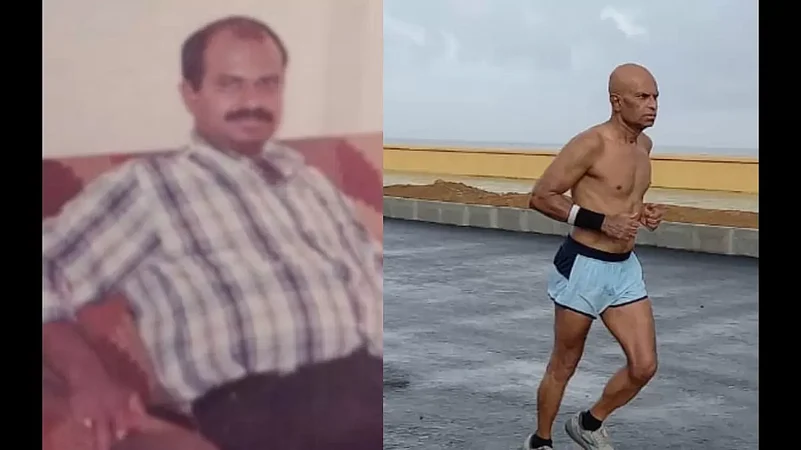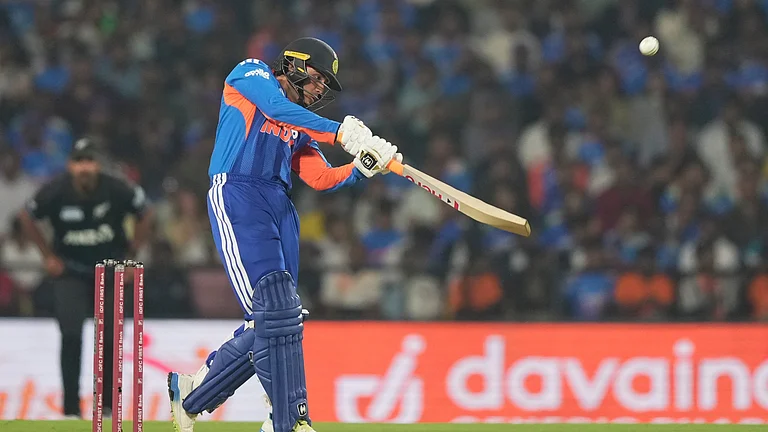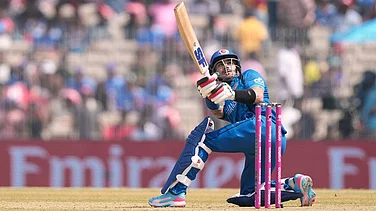Change often starts with shock.
Around 20 years ago, Sunil Shetty, the ultra-marathoner, was 40. He was Nestle’s Western Region head for Sales. It meant travel, drinks, restaurant food, along with work he wasn’t quite enjoying.
We all know when we are pushing boundaries of the negative kind, whatever facade we may put on. Shetty knew too. Two decades ago, at Pune’s Aurora Towers, he decided to confront the truth.
He stepped on the weighing scale. The needle touched almost 100 kg. His waist size was a chunky 38 inches.
“It was a wake-up call,” the soft-spoken Shetty says.
He immediately went to a Bata store, bought sports shoes and started running.
Now, many years of pounding gravel and strength training later, Shetty has defined abs, weighs 62kg and has a collegian’s waist of 28 inches. He is 60, but capable of running over 200km at a stretch, stopping only for food, bathroom or change breaks.
In 2017, Shetty ran 266km at an ultra-marathon in Bengaluru, starting on Friday evening, running through two days and nights, before stopping on Sunday evening. Conventional 42km marathons and 21km half-marathons are a piece of cake for him.
Driven Yet Content
It’s January for most of us. But for those like Shetty, it’s Run-uary, the month of the Tata Mumbai Marathon (TMM).
This year’s race is on Sunday, January 15. Four days prior, on a Wednesday morning at Powai’s Heritage Gardens, the sights and sounds of Run-uary are everywhere. In the semi-darkness of dawn, runners lean against the fence, stretching their calves and hamstrings. A trainer counts aloud the number of seconds that they have to hold the stretch.
Elsewhere is the audio of daily life - the scraping of the sweeper’s broom against pavement, birdcalls, ‘Mai to bhool gayi babul ka des’ playing on the phone of an elderly man.
Shetty arrives at the park, head shaved, and wearing a black singlet, tiny running shorts and Brooks trainers. Asked if his having a Bollywood namesake ever causes confusion, he smiles and says, “When people meet me for the first time, they are at times dejected it’s not the actor Sunil Shetty.”
Shetty has entered the TMM, and is in the ‘tapering off’ period. This is when runners ease off intense practice, and save themselves for the big day.
A light 8km is all Shetty intends to do, if at all. Given how much he runs otherwise, he is more than prepared for Sunday.
Shetty’s wife Sangeeta runs too. Her name is tattooed on his left arm. The other hand bears the name of his daughter Rhea. She has flown the nest to Pune, so it gives her parents all the freedom they need to train and run whenever and wherever they want. London, New York, the famous Comrades race in Durban, Shetty has done most of them, often accompanied by Sangeeta.
“I’m one of the fortunate ones whose wife is also into running,” he says.
“But such cases are rare. For a family with, say, just one person into running, it would mean a lot of compromises, as most weekends are spent running.”
It also helps that Shetty dropped out of the rat race at age 49 and now works with a friend at NEB Sports, which organizes running events.
“I’m someone who is content. I know how much I need and as long as I have, that I’m happy,” Shetty says. “The higher you go up in corporate life, it becomes a 24/7 job. I wasn’t enjoying doing that.”
Now he has the ideal mix. He runs in his free time, and his work is an extension of his passion.
A Calming Effect, and Some Murakami
Running has been wonderful for Shetty’s health. Does he also find deeper meaning in it? Does he enjoy the solitude that Haruki Murakami speaks of in ‘What I Talk About When I Talk About Running’?
The mention of the book draws a half-smile on Shetty’s face.
“It [the book] opens up lot of things. I won’t use the word ‘spiritual’, but he gets a little into that angle,” he says. “Yes, I do enjoy being in the zone, where nothing in the world disturbs you. If someone reaches that stage, only then you enjoy it. Going for a run shouldn’t feel like going to office.”
Running has calmed him down. It has helped him become disciplined. In mid-January, he knows his February schedule. He sleeps at 10 and is up by 5 am. On weekends, he runs more, so he gets up earlier, at 3.30 am. He drinks once a week, on Sunday evenings. He does not party much.
“You get invited to functions or parties and you have to politely refuse,” Shetty says. And while he eats and drinks everything, he does so sensibly.
There is one rule he strictly follows. He doesn’t train the morning after drinking. This is because alcohol dehydrates the body, and he feels mentally and physically you are not the sharpest after an evening of drinking, however moderate.
On the subject of long-term joint complications and heart attacks among middle-aged runners, Shetty says the answer is in knowing your limitations and not taking running too seriously.
“I sometimes get invited for talks on running, and I always remind runners that this is not our profession. Most of us run because it’s our passion, or because we want to be fit. And the body always gives us signals. We need to listen to those, rest when we need to, and get regular health checkups.”
From weighing 100 kilos to running 100 miles, Shetty has turned his life around. What would he say what running has meant for him in one word?
“Peace,” he says.


























